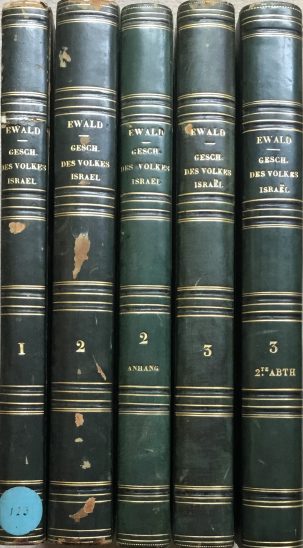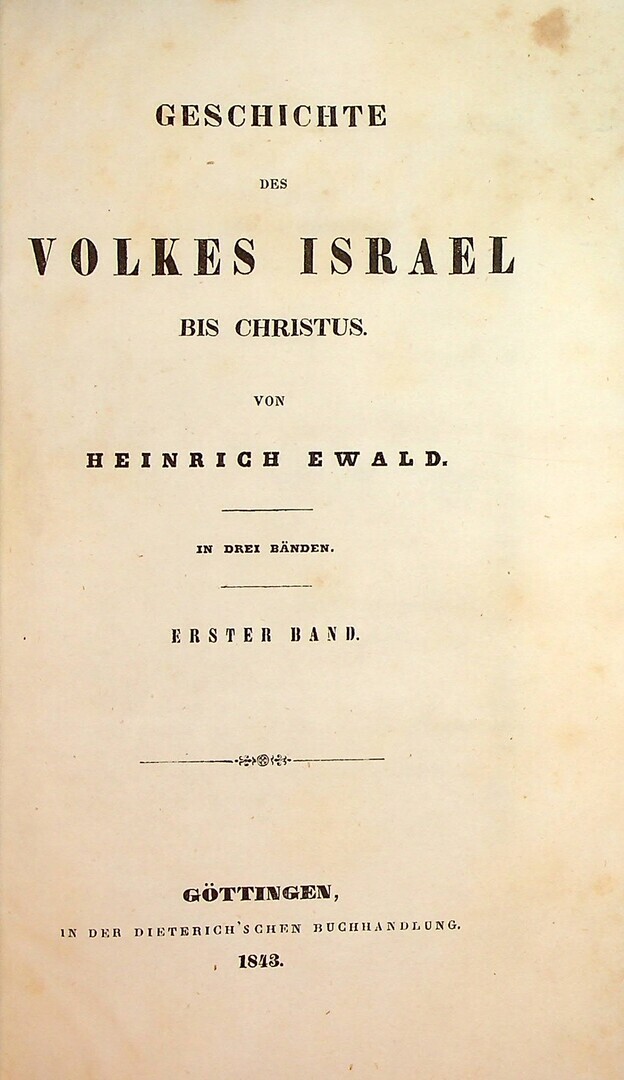Geschichte des Volkes Israel bis Christus. THREE VOLUMES IN FIVE.
Ewald, Georg Heinrich August von 1803-1875.
Synopsis
Georg Heinrich Ewald was a German orientalist, theologian, and Biblical exegete. He studied at the University of Göttingen. In 1827 he became extraordinary professor there, and in 1835 professor of oriental languages.
Ewald’s Hebrew Grammar inaugurated a new era in biblical philology. Subsequent works in that department were avowedly based on his, and Hitzig referred to him as “the second founder of the science of the Hebrew language.” He made important contributions as an exegete, biblical critic and grammarian. In particular, his Geschichte des Volkes Israel, the result of thirty years’ labour, was important in that branch of research.
Taking up the idea of a divine education of the human race, and firmly believing that Providence assigned a special task to each of the leading nations of antiquity, Ewald felt no difficulty about Israel’s place in universal history, or about the problem which that race had been called upon to solve. The history of Israel, according to him, was the history how humanity acquired one true religion, beginning with the exodus and culminating in the appearing of Jesus.
The historical interval that separated these two events is treated as naturally dividing itself into three great periods, those of Moses, David and Ezra. The periods are externally indicated by the successive names by which the chosen people were called—Hebrews, Israelites, Jews. The events prior to the exodus are relegated by Ewald to a preliminary chapter of primitive history; and the events of the apostolic and post-apostolic age are treated as a kind of appendix. The entire construction of the history is based on a critical examination and chronological arrangement of the available documents.








